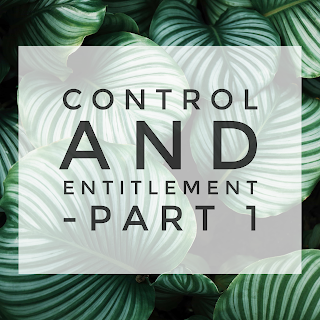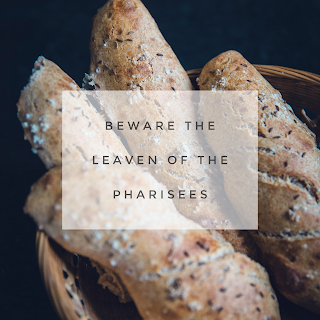Should Girls 'Stay In The Castle"?
by Jennifer Moodie
7/23/2020
Any woman who grew up in a Fundamental Independent Baptist church in the 2000's, has most likely heard of or read the popular little book, Stay In The Castle, published by Sword of the Lord ministries. On the surface, it sounds like a harmless book that advocates for purity and waiting for the man that is God's perfect will. Which we would think is a good thing, correct?
Ummmm.... almost, but not quite.
This book is actually quite problematic on a few levels.
First, let me start by saying that it is absolutely right to wait until marriage for sexual intimacy.
1 Thessalonians 4:3 states, "For this is the will of God, your sanctification: that you abstain from all sexual immorality."
So the book's desire to teach that one waits until marriage for sex is right and Biblical.
Now, please allow me to give a quick synopsis of the book for those who are either unfamiliar or need a refresher.
It starts by introducing a sweet, doted on, spoiled, and loved princess who lives in a castle with her father overlooking a worldly village. Even though her father attended to her every need and she was happy and always obedient, as she grew she became lonely and gazed longingly at the village. She heard people having fun, laughing, and playing music and she began to believe that they must be the happiest people in the kingdom.
One night she asked her father if one day she could go to the village, even for a short time. Her father responds by saying that the village is a worldly place full of sad people, and the sounds of happiness she hears from them is the sound of them attempting to drown out their emptiness and despair. He then tells her she isn't allowed to leave the castle.
The girl argues saying that she is lonely and if she never leaves the castle how will she find love?
Father replies with a story telling her that after she was born, he sent out a search to other castles in the kingdom to find the special prince for her. He shows her a road that is the 'King's Highway' and is the road her prince will travel when the time is right for them to meet.
The princess was excited about this, and for the first time looked past the village, dreaming of her prince.
But years kept passing and her prince didn't come. She became impatient.
It then details her looking at and flirting with the castle delivery man from the village. He was fun and exciting. He told her of the village below and invited her to visit. So she sneaks out of the castle to meet him there.
Three months later the princess marches into the Great Room to announce to her father that she had been going to the village, and that life there was so much more fun and exciting than life in the castle. She told her father- who was sitting with the Book of Lessons in his lap, stained with his tears- of the delivery man, and that they were going to marry. He announces that he has been watching her leave every night, and that if this was her decision, so be it.
A year later, she wakes up, in the last month of pregnancy, uncomfortable, and arguing with her husband who is a drunk. Even in her largely pregnant state, she must do her chores, so as she was sweeping the porch, she looked up at the castle as the sun was rising and saw a white horse with a rider and she immediately knew who it was. It was her prince. She watched as he knocked on the castle door, and talked to the king who told him where the princess was, and pointed at the village. The prince was sagging in disappointment and sadness, and as he rode away he looked in her direction and their eyes met. The princess cried, knowing that nothing would ever be the same again.
The end.
Depressed? Me too.
Now, I would like to post a wonderful and thorough review from GoodReads by David J. Harris. I couldn't say it better myself, although I will try to expound a bit.
Where to start. There is so much this is not. It’s not a book, but more like a sketch for a story that never really came together. It certainly doesn’t constitute a fairy tale in any meaningful sense of the term - there are no fantasy characters, or even a moral arc to the story that has the ring of truth. It’s not good literature. It’s not grounded well theologically. And if you look for a shred of evidence for serious biblical engagement, you will not find it. But these criticisms are, admittedly, broad. Here are a few of the more specific problems I had with the pamphlet.
1. It assumes a lie. The limited coherence the story has is based on the notion that people have someone else they are destined to marry - a Christian plagiarized version of the mythological soulmate. This idea supposes that for the young female Christian, God has created a “Mr Right” just for her. This will set the biblically illiterate on a quest to find the “One,” or perhaps even worse, to the notion more akin to this booklet, that a girl should just wait for the “One” to show up. This is really, really terrible thinking about marriage and preparing for it. First of all, no person needs a spouse to be ultimately fulfilled, especially a Christian. Second, God doesn’t make people for us, he makes them for himself.
2. It creates expectations where Scripture does not. Not only does waiting not guarantee a spouse, it doesn’t guarantee a lot of things. You could wait a long time for the “One,” marry the “One,” think of the “One” in the idolatrous terms hinted at above, and be absolutely miserable. Christians who follow this may get abused, divorced, betrayed, hurt, just as anyone may face these same things. As a Christian I don’t believe in soulmates, but I do believe in sin. Scripture advocates purity, but does not include the expectations created here. Which leads to another point.
3. It encourages a misplaced motivation for purity. Purity is absolutely right. Sexual immorality of all kinds is prohibited in the Bible, so it should be fairly obvious that Christians who embrace biblical authority are for purity. But while the Bible teaches purity, it does not teach God is dangling a human prize in front of those who practice it. We shouldn’t be motivated to practice sexual purity to get what we want out of a manipulated God. That’s not worship, it’s much more akin to paganism. What’s most disappointing about this book is that it ties absolutely nothing to the gospel. When you consider how often the reality of what God has done for us in Christ is used to motivate us to faithfulness in the New Testament, stuff like this really shows its true colors.
4. It misplaces value. The idea that sexual purity makes someone valuable and worthy of pursuit, while loss of virginity essentially reduces someone to a fundamentally different person in terms of worth, permeates the book. Yes, Christians believe that sexual sin, like all sin, wreaks havoc in people’s lives. But the idea that virginity is the line between being worthwhile and being damaged goods fails to take into account both the imago dei, the originating source of our value, and the redeeming work of Christ.
If there is one use to the book, I suppose it is this: it shows just how ridiculous a gospel-emptied approach to purity is.
This book has a fundamental flaw in saying that there is apparently two wills of God- His perfect will (the Prince) and His permissive will (the man she ends up marrying). As
this brief article states, that actually makes God weak and impotent, rather than omnipotent and omniscient. That belief paints man as sovereign and God unable to fulfill His will. Something I always wondered about this book is if the Prince found anyone else? If the princess was 'the one', and she didn't wait for him, then did the prince have to be single now? Did it make any other woman he chose to love 'second best'? Does the Princess's 'mistake' and impatience then make everything the prince did a mistake after?
This teaching greatly impacted my life and marriage. I had been told, then came to believe, that my husband was not God's perfect will for me, but because we had had sex out of wedlock, he then became God's permissive will for me. Then, when my husband turned out to be abusive emotionally and verbally and in other ways, instead of asking for help, I believed it was simply my lot in life, a sort of punishment...that it was God's will that I suffer for ruining His 'perfect will'. And it made me start looking for 'my prince', the man I was 'meant' to be with. It made me dissatisfied with my marriage rather than seeking help and trying to fix it and make it better. I firmly believe that God accomplishes what He wills. He is not an incompetent God. While our relationship and marriage was marred by the sin of the curse because of Adam, He was bringing about His desired will. If I hadn't married my husband, and if we hadn't had the marriage we have and committed the sins we did, I wouldn't have come to see my need for Him. I wouldn't have understood my depravity and absolute dependance on Christ. We wouldn't have seen our spiritual decline and need to find a church that helped us grow. If my husband is only God's 'permissive will' for me, then that would make my four, precious, beautiful, amazing children somehow God's second best, and I am then missing out on His best. I cannot even comprehend that, and to even think of it is demeaning to myself, my family, and to God. I am blessed and love my life. God has used everything in my life to bring me closer to Him.
I love how the London Baptist Confession of the Faith 1689 states it:
CHAPTER 3
OF GOD’S DECREE
Paragraph 1. God hath decreed [decided by himself] in himself, from all eternity, by the most wise and holy counsel of His own will, freely and unchangeably, all things, whatsoever comes to pass [Nothing forced Him in the making of any of His plans, and all His intentions will be carried out without the slightest alteration];1 yet so as thereby is God neither the author of sin nor hath fellowship with any therein; 2 nor is violence offered to the will of the creature, nor yet is the liberty or contingency of second causes taken away, [ie: nor is the free working of the law of cause and effect interfered with], but rather established; 3 in which appears His wisdom in disposing [ordering the course of events] all things, and power and faithfulness in accomplishing His decree.[God's faithfulness here means - His unswerving conformity to His own holy character and His revealed Word]4
1 Isa. 46:10; Eph. 1:11; Heb. 6:17; Rom. 9:15,18
2 James 1:13; 1 John 1:5
3 Acts 4:27,28; John 19:11
4 Num. 23:19; Eph. 1:3-5
I also love how Jen Wilkin puts it in this
video- (paraphrase) “
God is always more concerned with the decision maker than He is with the decision itself... because every decision is a product of who we are. So a better question to ask is ‘Who should I be? vs ‘What should I do?’” Wow! That is so good!! That sums up this post better than I ever could have.
I also see this book as showing the castle as some sort of holy bubble that we Christians live in with the world somehow 'down there'. It shows us as physically separated from the world, as if as long as we stay away from anyone not "in the castle", we will be safe from the worldly influences. Which is false. We are separate in words and deed because we are set apart, a chosen people, being sanctified and having the Holy Spirit in us and His fruits. But we are in the world...not of it. (John 17:16-17) Yet even as Christians, James 2:14 tells us that "...each person is tempted when he is lured and enticed
by his own desire." (emphasis mine) We don't need a metaphorical worldly village to lure us and entice us, when we, without Christ, are quite worldly ourselves. This book assumes that if the princess had not left the castle (a strange replication of Gothard's '
umbrella of protection'), she would have been married to the prince and happy. It shows her father choosing her mate, and her inability to and incompetence in choosing for herself. So, basically, if you want to have a shining prince and live in a castle, you should let your dad choose your mate, and if you disobey and try to make your own choices, you will be pregnant, sad, and doing dirty work in a dirty village hut. Which, brings to mind, I am not exactly sure why the author included pregnancy in the end as a sort of proof of her life being a mess. A baby is never a punishment, nor does God, the creator of all human life, make mistakes in allowing a life to be conceived. Perhaps he included it as proof of sexual activity...? Either way, I found that addition to be odd.
I have seen this little book, or pamphlet, recommended even recently, and I hoped to help bring up some concerns as to why this isn't the best book to recommend. I am on the lookout for better suggestions, and will add them here as I find them. For now, I am of the mind that we do well to focus on glorifying God and enjoying Him in all things, a command given in Scripture, and when we do that, He will direct our steps and guide us in His will.
Psalms 37:23
The steps of a man are established by the Lord, when he delights in his way;
Proverbs 16:9
The heart of man plans his way, but the Lord establishes his steps.
Jeremiah 10:23
I know, LORD, that a man's way of life is not his own; no one who walks determines his own steps.
Proverbs 19:21
Many are the plans in the mind of a man, but it is the purpose of the LORD that will stand.
Soli Deo Gloria
*also, if you desire to read the book in it’s entirety but don’t wish to buy it, you can do so
here




Thank you for posting!
ReplyDelete